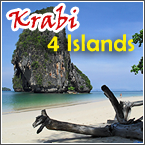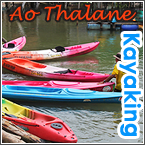Recalling Days Of Ore.
July 7, 2010 by admin
Filed under Related Interests
A Phuket museum will celebrate the island’s rich tin mining history
Phuket was once famous as one of the country’s major tin producers and the memories of days gone by when a thriving tin mining industry brought economic prosperity to the southern province remain vivid. A local tin mining museum in Kathu district recently had its soft opening. It will relive the success story of the island province’s industrial past and promote local history. Scenes of vibrant tin mines are now a thing of the past, but every old tin mine has its own story to tell and is worth preserving for educational purposes and posterity. According to old records, tin mining in Phuket began around 1526 during the reign of King Eka Tossarot who ruled the Ayutthaya kingdom. Tin trading in Phuket began to thrive around 1686 during the reign of King Narai the Great of the Ayutthaya kingdom. French merchants then arrived in the province and set up companies with a monopoly in the tin trade. The tin mining industry in Phuket created economic prosperity for local communities for a long time before natural supplies of ore ran out. In the past, tin mining was very labour-intensive before it evolved into a large-scale industry using heavy machinery. Edward Thomas Miles, an Australian, brought the first tin dredge to Phuket in 1909. He was granted the Tongkah Harbour Concession Agreement to mine tin deposits on Phuket Island. Tin helped boost the local economy in Phuket.
Jobs were created and other related or downstream businesses were also developed and thrived. Tea shops, eateries, markets and groceries were set up to cater to labourers working in the mines. A wide range of merchandise was on sale such as bicycles, motorcycles, spare parts and clothes. Downstream businesses included tin exploration, marine transport services, surveying and tin smelting plants. Many local families were involved in the thriving tin mining industry and made a fortune out of it. At the museum, two exhibition areas are arranged, inside and outside the premises. Inside, visitors can learn the history of tin mining, the techniques of mine surveying and exploration and the everyday lives of the mine workers. Equipment used in tin mining and the first tin dredger in Thailand are on display at the museum. Precious old maps and correspondence between traders are also archived at the museum. Products from precious stones and other kinds of ore from mines are also on show. There are mock-up models of the tin mines. Thawichart Intararit, a culture officer in Phuket, said it cost about 50-100 million baht to build the museum. Phuket deputy governor Theerayuth Iamtrakul said more than 10 million baht has been allocated to promote the island province of Phuket as a place to live and the museum will showcase the evolution of its culture, of which tin mining plays an integral part. Cultural events are organised regularly to boost tourism. Chai-anat Sutthikul, the mayor of Kathu municipality where the museum is located, said it is aimed at preserving the local legacy and reminding people of the importance of tin mining in the province. Sommai Pinphutthasilp, director and curator of the museum, said in the future guides skilled in foreign languages will be on hand at the museum to explain things to tourists. Apinant Posayanont, deputy culture permanent secretary, said he hoped the tin mining museum at Kathu, when it opens officially next year, becomes another display of the richness of local culture, giving tourism a further boost. Bangonrat Chinaprayoon, director of the Tourism Authority of Thailand’s Phuket office, said the museum would emerge as a new tourist spot in Kathu district and it is expected to pull in visitors to the island province.
Mining tin made many a fortune
Many wealthy families in Phuket made their fortunes from tin mining which flourished in the old days. Anchalee Vanich Theppabutr, deputy secretary-general to the prime minister, said tin mines were natural assets of Phuket and other nearby Andaman coastal provinces. Her ancestors and other families in Phangnga and Krabi provinces became wealthy from mining tin. She still had vivid memories of the mining activities in her home province. Different mining methods – gophering holes, dredging and hydraulicking – were employed by miners. “During my childhood, there were many mining sites using different mining methods,” said Mrs Anchalee. She said mining had brought many benefits to the province and local residents. With their abundant mineral resources, Phuket and other Andaman coastal provinces began trading with other countries in the old days. Trading also instilled service-mindedness in local residents and this helped support Phuket’s change from a mining town to a tourist attraction. The Vanich family was in the mining business for a long time. Ms Anchalee said her ancestors were Chinese. Knowledge about mining had been passed down from generation to generation. She said the planned mining museum in Phuket would add to the local tourist attractions. However, she said the museum must be properly managed and appealing so it does not end up being a ‘dead’ attraction. The planned museum should tell visitors about local people’s way of life during the heyday of the mining era. Montri Hongyok, executive of Anupasvivitthakarn Co, said mining was hard work and time-consuming. Miners had to survey sites at various locations to find the minerals. Mr Montri, who comes from one of Phuket’s tin magnate families, said once they found potential sites, they had to excavate the areas.
Living quarters for workers would be built there. Machinery and other equipment used for the work had to be sent in. To get ore, the soil surface had to be opened up by high pressure water spray. Ore that was dug up then had to be washed and left to dry before being put in sacks. Miners were required to pay tax to the Mineral Resources Department before selling the ore. Mr Montri said his family’s wealth came from tin mining and other businesses such as rubber plantations, sawmills and maritime navigation. The family later stopped their mining business due to falling prices of tin ore and shifted to real estate and auto. He welcomed the planned establishment of the mining museum, which would allow tourists a glimpse into the past when tin mining breathed economic vitality into Phuket.
SOURCE : http://bangkokpost.com/travel/travelscoop/184680/recalling-days-of-ore
















